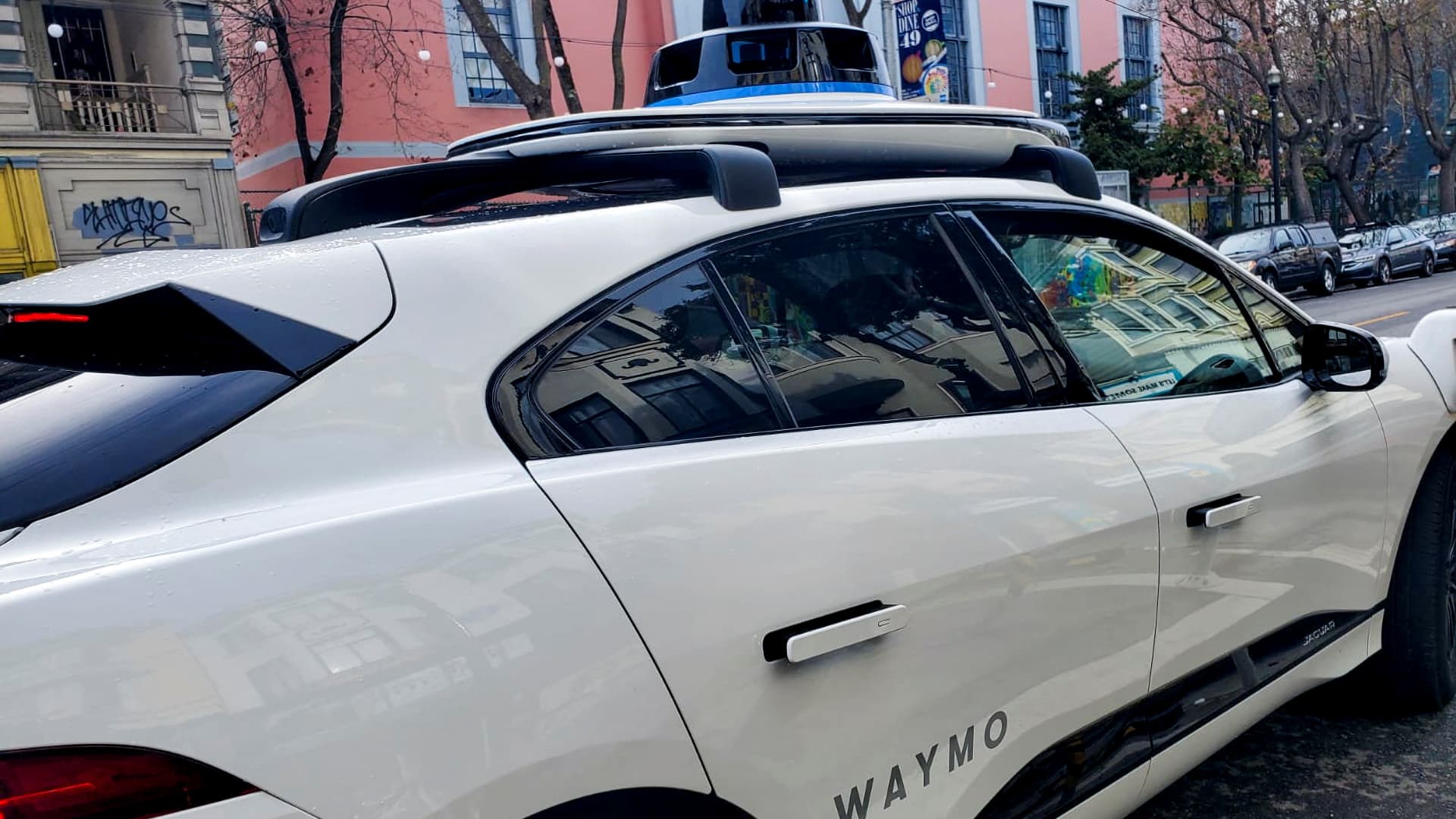
Waymo has filed a voluntary recall notice with federal vehicle safety regulators for software that was previously used in their driverless cars, the company announced Tuesday, marking a first for Alphabet‘s self-driving vehicle unit.
In a company blog post Tuesday, Waymo said the company chose to do the voluntary recall after consulting with the National Highway Traffic Safety Administration and its internal review of two incidents which took place in Phoenix on Dec. 11, 2023, in which two robotaxis crashed into the same towed pickup truck within minutes of each other.
The NHTSA did not immediately respond to a request for comment.
The two collisions involving their robotaxis resulted in only minor vehicle damage and no injuries, Waymo said in the post. No passengers were in the vehicles, according to the post.
Waymo spokesperson Katherine Barna said Waymo’s automated driving system, or ADS, incorrectly predicted the “future motion of a towed vehicle,” and the company’s voluntary recall included updating its software to address this issue. The company updated the software when the cars were returned to Waymo depots for regular maintenance and recharging, not over-the-air or through remote software updates, Barna added.
The software updates were completed by Jan. 12 and did not interrupt Waymo’s ride-hailing service, Barna said.
Waymo currently operates its driverless ride-hailing service Waymo One in Phoenix, San Francisco, Los Angeles and Austin. The company has approximately 700 vehicles total in the Waymo One fleet, with a couple hundred cars in each of its fully autonomous Waymo One service areas, Barna stated.
In recent months, some public backlash has arisen over driverless vehicles and how they are being tested and rolled out on public roads, following collisions and concerns over the impact of automation on drivers’ jobs.
Waymo has generally faced the least of public criticism, owing in part to its public affairs communications with agencies like NHTSA and local first responders. Waymo says it has driven 10 million fully autonomous miles and served over one million ride-hail trips.
However, in the fourth-quarter of 2023, the California Department of Motor Vehicles suspended the deployment and testing permits it had previously issued to Waymo competitor Cruise, which is owned by GM.
The revocation of those licenses followed an Oct. 2, 2023 incident in which a pedestrian in San Francisco was dragged 20 feet by a Cruise robotaxi after first being struck by a separate, human-driven vehicle.
Another would-be Waymo competitor, Tesla, has yet to deliver an automated driving system (ADS) or robotaxi although CEO Elon Musk promised that a self-driving Tesla would be able to navigate across the U.S. without any human interventions by the end of 2017. Instead, Tesla sells advanced driver assistance systems that it markets as “Autopilot” and “Full Self-Driving” options.
The California DMV has filed formal accusations against Tesla saying that the company’s marketing and advertising is deceptive.
Last week, a driverless Waymo car collided with a cyclist in San Francisco, causing minor injuries and the incident is now being reviewed by the state’s auto regulator.
In a separate incident, unknown parties set a Waymo vehicle ablaze on Saturday in San Francisco’s Chinatown during Lunar New Year celebrations. No group has yet claimed responsibility for the destruction of the Waymo car. Authorities are investigating who the responsible parties are, according to reports by NBC Bay Area.




















